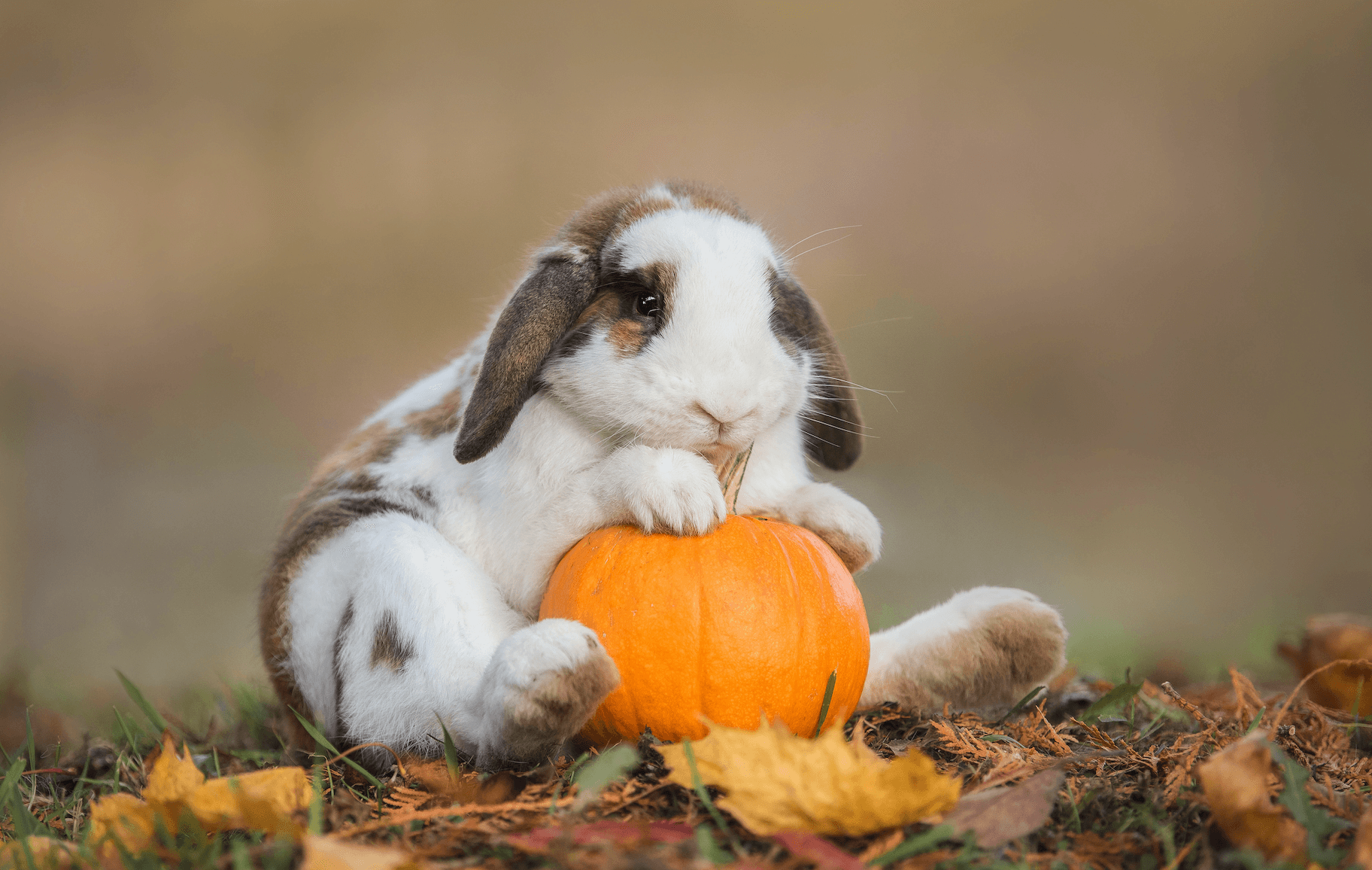Gardeners put in a lot of hard work nurturing pumpkin vines through the growing season for the eventual autumn payoff of big, bright orange fruits. But you might discover those vines munched overnight by a stealthy backyard rabbit. So do rabbits eat pumpkin plants? The short answer is yes. Rabbits are drawn to the young tender foliage, shoots, stems and leaves of pumpkin plants. The sweet and soft texture makes it an irresistible snack. Along with pumpkins, rabbits relish other vegetable crops and seedlings too.
Why Bunnies Love Feasting on Pumpkins ?
There are a few key reasons why rabbits actively seek out pumpkin plants to feast on:
High Moisture Content – Rabbits need a daily dose of water from their food to stay hydrated. The 90% water content in pumpkin plant parts offers them juicy refreshment.
Source of Fiber – Rabbits have sensitive digestive systems requiring substantial fiber in their diets. Pumpkin vines contain adequate fiber to keep their guts functioning smoothly.
Rich Nutrition – Pumpkin leaves contain vital nutrients like proteins, vitamin A, potassium, phosphorus and zinc. This nourishes and energles rabbits.
Easy Accessibility – Pumpkins often spread close to the ground, making their vines and leaves effortlessly accessible to nibbling bunnies.
Good Taste – Rabbits use their sensitive nose and lips to test flavors before eating. The appealing sweet-bitter taste of cucurbit crops like pumpkins makes them delectable.
Tender Texture – A rabbit’s front teeth grow continually, keeping them sharp by gnawing on tender vegetation. Pumpkin plant parts match this preference well.
Save Your Pumpkin Plants
Though pumpkin leaves make up only a small portion of a rabbit’s diverse diet, the damage done to vines can be quite severe. Some tips to save pumpkins from ravenous bunnies include:
- Physical Barriers – Installing fences or wire cages around the perimeter of the pumpkin patch excludes rabbits effectively.
- Natural Repellents – Inter-planting sage, garlic, onions or marigolds alongside pumpkins deters rabbits with their strong scent.
- Companion Planting – Low-growing pumpkins surrounded by taller sweet corn plants or pole beans gain some camouflage.
- Proper Site Selection – Choosing an open site away from woodlands or bushy zones inhabited by rabbits reduces likelihood of discovery.
- Crop Rotation – Avoid planting pumpkins in the same spot annually as rabbits often return to places with familiar food sources.
- Thick Mulching – Covering the soil around pumpkins with a deep straw mulch layer hampers rabbits from hopping close or hiding.
- Guard Dogs – Protective dogs that patrol gardens and make loud warning sounds ward off approaching rabbits effectively.
Swift Action for Damage Control
If rabbits have already invaded and damaged pumpkin vines substantially, taking prompt corrective care is vital to nurse the plants back to health:
Assess Damage – Check if plant stems are only nibbled or severed completely. Severe base damage necessitates replacing vines.
Light Pruning – If stems and leaves show minor nibble damage, neatly trim off the affected parts to encourage new growth.
Protect Healthy Vines – Shield the remaining healthy vines and developing pumpkins using row covers or hardware cloth cages.
Monitor Progress – Check frequently to spot fresh rabbit damage and take protective measures before further destruction.
Rabbit Control Strategies – Implement repellent sprays, scare devices or fencing solutions to completely deter future rabbit invasion.
Conclusion
To answer the original question – yes, rabbits do eat pumpkin plants due to their sweet-bitter flavor and tender shoots, vines, leaves and stems being irresistible. But gardeners can outsmart bunnies and still successfully grow great pumpkins through astute rabbit control and damage limitation measures. Stay alert and don’t let cute rabbits sabotage pumpkin patch dreams!


